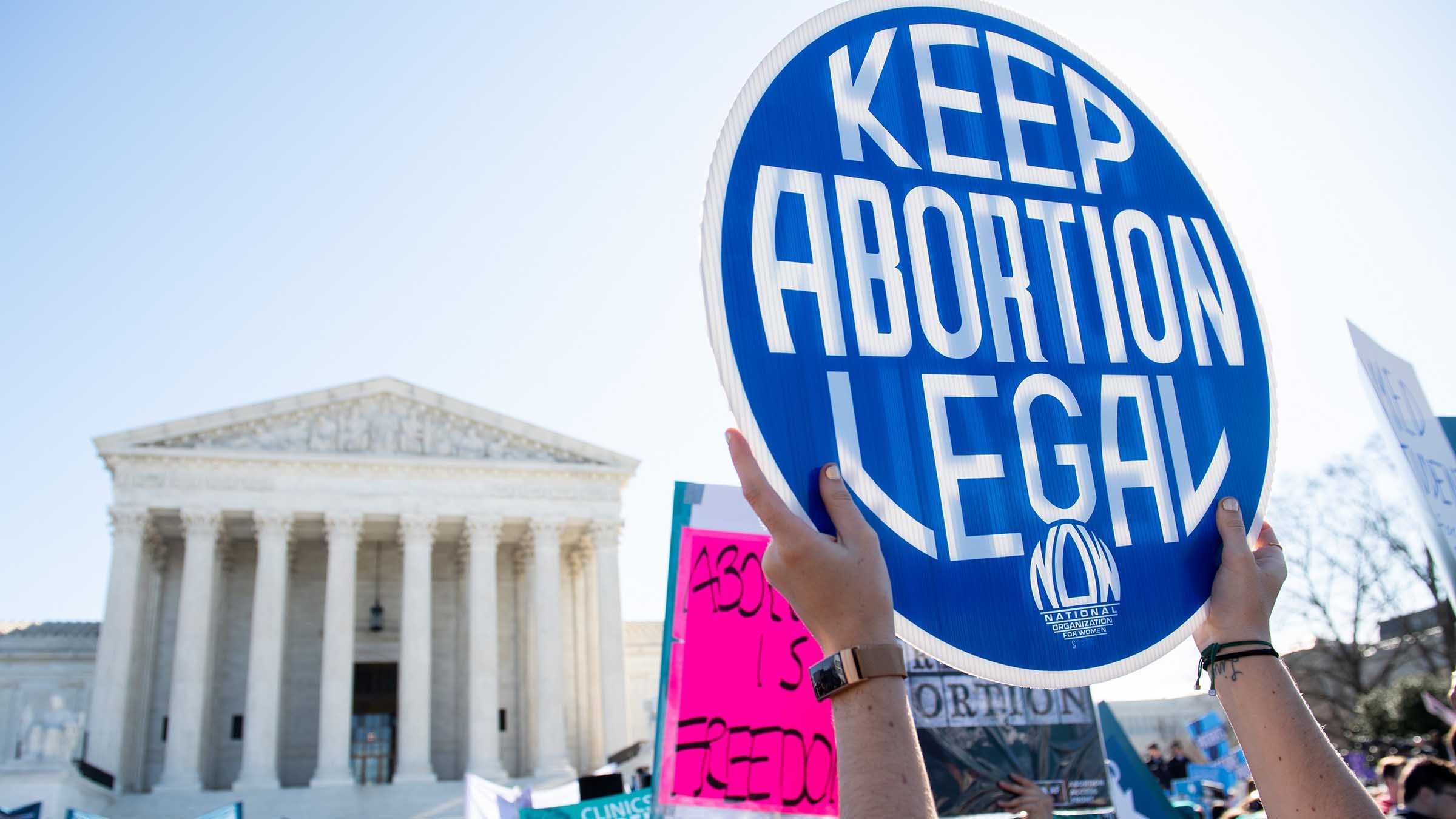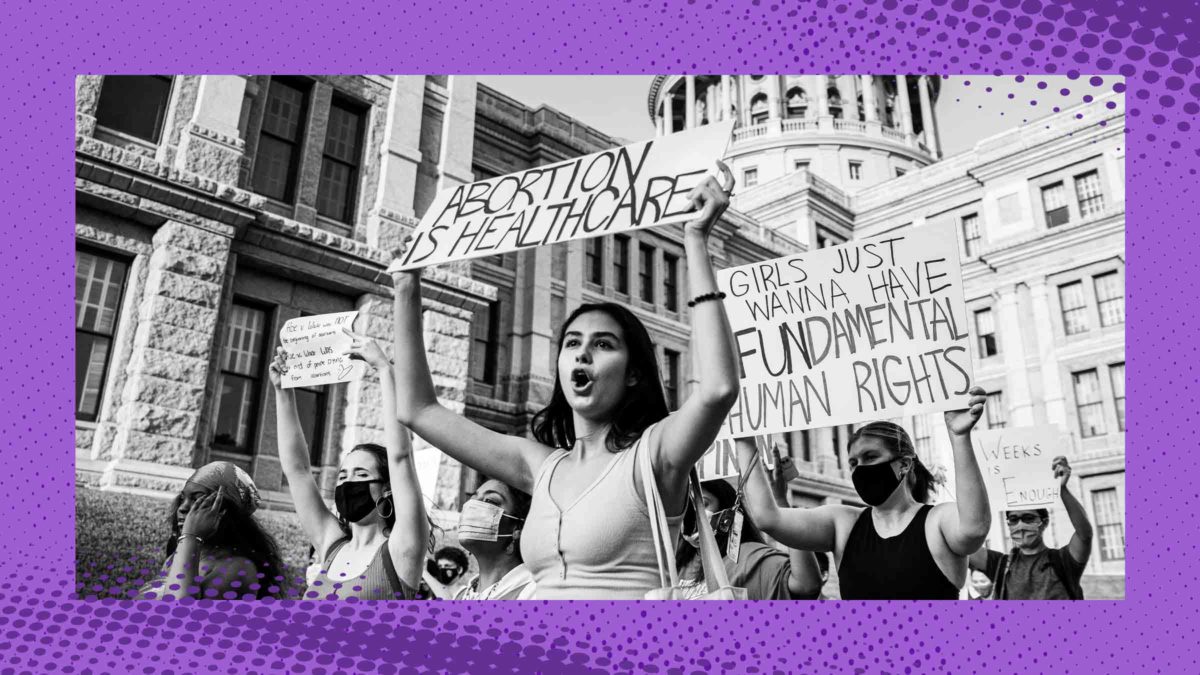A couple of weeks ago, the Supreme Court refused to block the implementation of SB8, Texas’s newest and perhaps most draconian anti-abortion law. As a result, the law will remain in effect at least until it is ruled unconstitutional by a court, a process that will likely take a few months, if it happens at all.
That SB8 violates Supreme Court precedent is undeniable. Roe v. Wade and Planned Parenthood v. Casey together hold that abortion through at least the 23rd week of a pregnancy is a constitutionally protected right. SB8 allows lawsuits by private citizens against any person (other than the person actually getting an abortion) who aids and abets an abortion later than six weeks into a pregnancy. The result is a state where citizens are functionally deputized in the service of an anti-abortion regime, able to sue anyone who “facilitates” an abortion and collect a monetary reward. With providers at risk of being targeted, abortion services in Texas have been throttled.
But the Court’s decision in Whole Woman’s Health v. Jackson didn’t technically uphold SB8; it simply let the law stand until a court renders a final determination on its constitutionality. Since the opinion’s release, a debate has been raging: Was Roe just “overturned”? Noah Feldman, a Harvard Law professor and legal commentator whose Supreme Court coverage tends to involve an unparalleled amount of credulousness, wrote in Bloomberg that not only was Roe not overturned, but the Court’s decision gives us no indication of whether it will be in the near future. Jonathan Turley, a George Washington University law professor and, to the extent such a thing exists, libertarian legal scholar, mocked politicians and media figures who claimed Roe had been overturned. On the other end of the spectrum, multiple commentators took the position that the Court had “functionally” overturned Roe.
Much of the debate seems to center around the fact that the parties involved are answering two very different questions. To the legal formalists who dominate the ranks of academia, the question “Was Roe v. Wade overturned?” means “Did the Supreme Court expressly overrule Roe v. Wade in a written decision?” And the answer to that question is quite plainly “No.” But if you are a legal realist—someone who concerns themselves with the material impact of the law rather than its letter—you hear a different question. To the legal realist, “Was Roe v. Wade overturned?” means “Did the Court dispose of the right to abortion in Texas?” What matters is not the jurisprudential question of whether Roe still stands, but the status of the right that Roe ostensibly protects. Does the constitutional right to an abortion still exist in Texas? The answer to that question is similarly clear: It does not.
That academics have taken to America’s op-ed pages to trumpet the technicality that Roe is still the law is symptomatic of a profession that prioritizes formalistic detail over the lived experience of the human beings it purportedly aims to govern. There are people seeking abortions in Texas right now who will not receive them because of the Supreme Court’s ruling. There are countless more who will become pregnant in Texas in the coming months without access to safe and reliable abortion services. Providers across the state have already halted abortion services in the wake of the Court’s decision. Does it do any of them a single bit of good to know that, very technically speaking, Roe is still good law?

This is not to say that whether Roe is technically overturned is irrelevant. Eleven states have enacted “trigger laws” that would institute abortion bans as soon as Roe is officially overturned. But that doesn’t mean the rights of people seeking abortions in those states are safe as long as Roe stands—those same states are now likely to test the boundaries of the Court’s decision with laws mimicking SB8.
For decades, anti-choice activists have weaponized the law’s preoccupation with technicality to chip away at abortion access. While many legal academics fixated on the existence of Roe, abortion opponents focused on the meaning of Roe. Sensing that Roe was unlikely to be overturned in full, anti-choice groups shifted their focus to whittling away at the scope of the right that Roe ostensibly protects. They passed laws designed to make it difficult to provide and receive abortion services in myriad ways, from imposing lengthy waiting periods and mandating invasive pre-abortion procedures to imposing burdensome zoning and licensing requirements on abortion providers. Courts frequently upheld these laws. The result is that while many mainstream liberal politicians have been coaxed into complacency by the fact that Roe still stands, the right that Roe protects has weakened to the point where multiple states are left with only a handful of active abortion providers, and those that remain are often forced to offer limited services.
If you are a wealthy, privileged law professor who has never been more than a few phone calls away from publishing a Bloomberg op-ed, you don’t conceive of the law as a struggle for human dignity
The academic fixation on technicality is the product of a field that has become too inward-looking and process-driven for its own good. When an academic takes to the editorial pages to make the point that Roe still stands, he’s not just explaining the state of the law to his readers. He’s sending politicians, activists, and concerned citizens a message: Relax. You’re overreacting! For legal formalists, the breakdown of civil rights is an academic matter, not a moral one; the story of abortion rights in this country is not a story of how activists risked their lives to wrest their rights from powerful interests, but one of mere scholarly disagreement. Moral outrage directed at Court decisions accordingly befuddles them. If you are a wealthy, privileged law professor who has never been more than a few phone calls away from publishing a Bloomberg op-ed, you don’t conceive of the law as a struggle for human dignity. The law is a battle of ideas; your dignity has always been guaranteed.
At some point in the coming year, the Court will hand down a major ruling on abortion that will almost certainly eviscerate what little remains of the right to choose. There is a good chance the justices will expressly overturn Roe altogether. If it survives in some hollowed-out form, however, there will likely be another deluge of opinion pieces hoping to reassure you that as long as Roe technically still stands, you can chalk it up as a win. You would be wise to look past that shallow analysis and toward the increasingly fraught experience of the people seeking abortions in America: The right to an abortion doesn’t mean anything if it only exists on paper.

